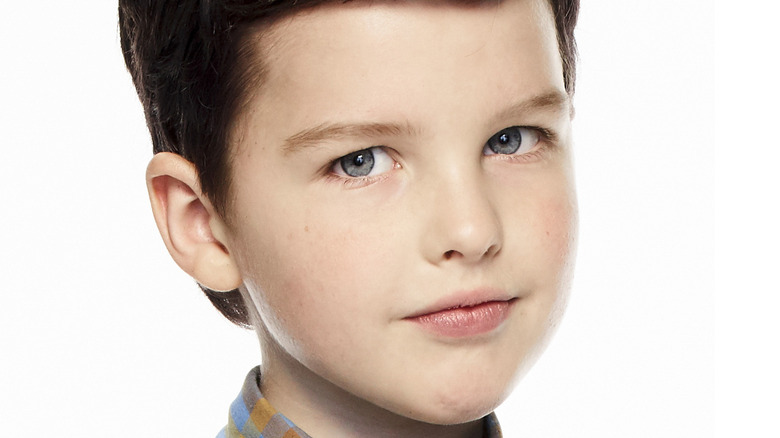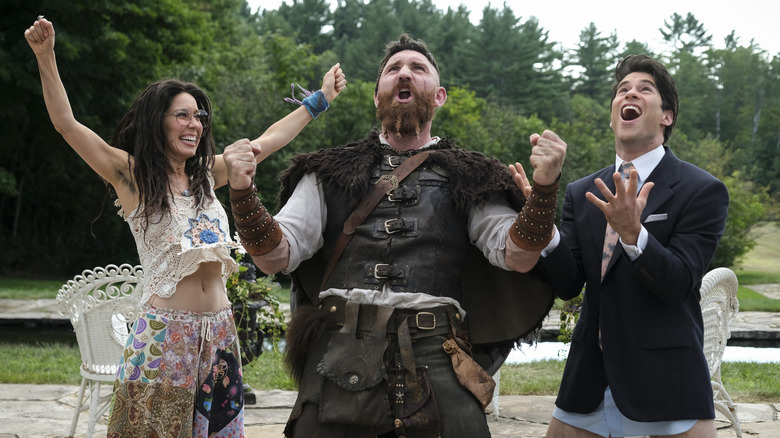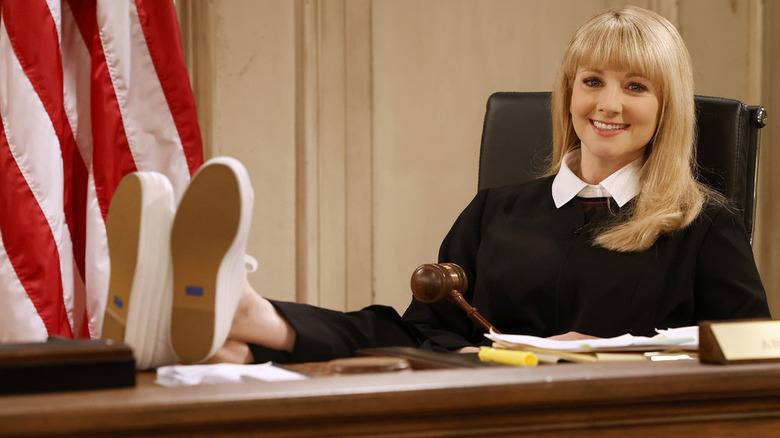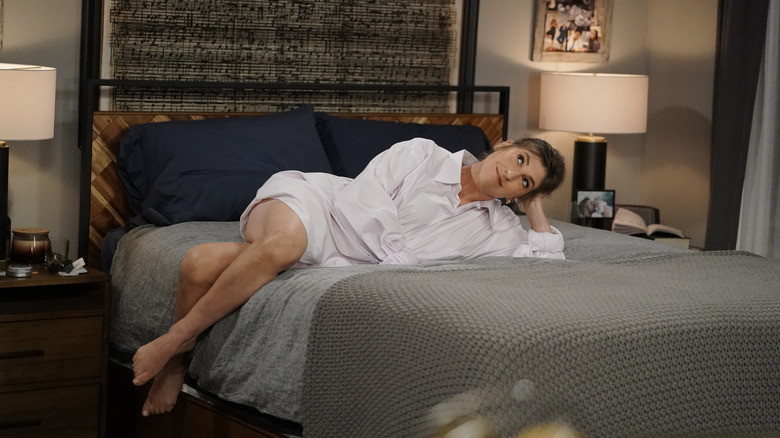Today's Sitcoms Have Proven The Doomsayers Wrong, And The Proof Is In The Pudding
We have come here not to bury but to praise the sitcom.
For the last five years, the sitcom has been referred to as a dying art on its way to the cultural scrap heap. As far back as 2004, no less a venerable organ than The New York Times put together a roundtable of popular comics and asked them if the sitcom was ready to die (the general reaction from the comics called to hand: "Eh, it depends"). The case seemed more urgent as every year passed, and more hourlong dramas were greenlit. With audiences favoring action series, three-hanky weepers, police and fire procedurals, and prestige pieces, there seemed to be no room for simple predicaments, easy answers, and family togetherness.
But a lot has changed over the past couple of years, as the Covid-19 pandemic has set in and children who grew up on "i-Carly" and "Zoey 101" have reached their maturity. The world seems to be looking for comfort, something easy to come home to and cuddle up with. Programs that are easy to digest when the universe at large can be complex and chaotic — with characters worth caring about but less high-concept than the "Losts" and "Breaking Bads" of yore.
As the 2020s have slowly but surely begun to spin out their untold tales, TV watchers have started to turn toward the warm, familiar, and comforting. The sitcom has bounced back, is more significant than ever, and seems poised and ready to take over pop culture again. It has proved that — as an art form and as a popular television medium — it's going nowhere.
ABC has found hope in Abbott Elementary
When "Modern Family" concluded its 11-season run for ABC, USA Today portended the death of the pop culture-sweeping sitcoms. Insisting that there'd never again be a sitcom that, like "Friends" and "Seinfeld," could literally stop traffic on the day it ended. It called "Modern Family" the last of a dying breed for sitcom-based appointment television.
ABC has never given up on the genre that fostered it throughout the 1970s when shows like "Happy Days" and "Laverne & Shirley" made it the most-watched network in the land. In their post-"Modern Family" era, they've bucked repeated claims that the sitcom was about to die and gained solid hits like the 1980s-set "The Goldbergs" and a revival for "Roseanne," which in turn gave birth to "The Conners." While shows like "Home Economics" haven't become phenoms, they remain popular enough to foster solid Wednesday night fanbases.
But nothing has proven that sitcoms are still a healthy bet for network programming like "Abbott Elementary" has. The single-cam sitcom takes viewers to a Philadelphia elementary school with a dwindling budget and a staff of dedicated, if wry, teachers and makes you care about their futures. The ensemble comedy provides viewers with ongoing storylines (Ava Coleman's possible redemption? Gregory Eddie, and Janine Teagues' classic will-they-won't-they sitcom romance?) that keep them invested. This has paid ABC back handsomely. A breakout hit from its first season, "Abbott Elementary" still brings in millions of viewers and manages what many shows wish they could do — trend on Twitter every time a new episode airs. The result? An early Season 3 renewal and boatloads of awards. The sitcom is not only alive on ABC; it's thriving.
CBS rules broadcast TV thanks to Sheldon and Ghosts
CBS, too, never gave up on the sitcom genre even when its formula of forensic-centric action dramas about murders and crime scenes brought home most of their rating bacon. Though it's had some rough going finding its footing after "The Big Bang Theory" and "Two and a Half Men" closed up shop, the eye network turned to long-running juggernaut sitcoms like "Mom," which paved the way for a spate of series that have done very well for the network. CBS tends to seesaw between greenlighting high-concept series and typical multicam fodder. Only on CBS would a sitcom about two families learning to become friendly after one of them moves into a Los Angeles neighborhood ("The Neighborhood") and a show about a man who has a heart attack and falls in love with his cardiac nurse, then slowly sets about winning her over ("Bob Hearts Abishola") sit comfortably side-by-side together on the same night and both prove to be successful.
Two massive hits have proven CBS' seesaw choice-making to be spot on. "Young Sheldon" is a classic sitcom that serves as a prequel for "The Big Bang Theory" and takes a sometimes bittersweet look at the way Sheldon Cooper (Iain Armitage) grew up to become a Nobel Prize-winning scientist. It's both the most-watched sitcom on terrestrial television and the most-watched show on TV. Then there is the overwhelmingly successful high-concept hit "Ghosts," which has already pulled in a Season 3 renewal after drawing an astounding 11 million plus people every week. "Ghosts" follows the afterlife of eight ghosts and the humans who own the land upon which they died. It shows that taking risks with sitcoms can be rewarding and creatively stimulating.
NBC may have found new hope through Night Court
NBC became the king of the sitcom world in the 1980s, and it carried that crown through the 2000s when it ruled the cultural conversation with "The Office." In the 2010s, "Community" and "Parks and Recreation" had long runs before the former was shunted to early internet streaming, and the latter exited on its terms. But the 2020s have been harder on NBC's comedy ambitions; it has subsequently cycled through many one-and-two-season wonders in pursuit of the next big thing. The most successful comedy on NBC until very recently was "Young Rock," which serves as a funny, though clearly sanitized and self-serving, look back at the life of Dwayne Johnson.
All that struggling to find the right hit seems to be over with the advent of its "Night Court" sequel series. Its first two episodes drew over 7 million viewers, a huge total in the streaming world. Fans seem interested in supporting Melissa Rauch's cheerful Abby Stone as she makes friends with her father's former best friend, Dan Fielding (John Larroquette), and rules over the ever-active night court that was once her father's domain. The sitcom genuinely has a sparkle to it, a sense of joyful rowdiness that would make its progenitor, the late Reinhold Weege, proud. It also provides the magic NBC has sorely needed in the sitcom department all decade. It remains to be seen if NBC can build back a whole evening of comedy off of the back of the success of "Night Court"; Thursdays now belong to "Law & Order," and Wednesdays to the One Chicago franchise — but now that they have a bonified comedy hit, it's entirely possible.
Fox and The CW stay outliers
While addressing the conclusions of both "Mom" and Fox's "Last Man Standing" in 2021, Variety posited that it's rare to see sitcoms reach a hundred episodes — usually the gold standard for syndicating TV shows. This will not necessarily be true; the more popular sitcoms become, the more sitcoms you'll see in syndication, but it's worth noting that in the wake of the success of "Last Man Standing," Fox has remained very sitcom-light.
Indeed, "Last Man Standing" — which transferred over from ABC — has been the last sitcom of note to draw ratings for Fox. But Fox definitely hasn't given up on the medium entirely; the Joel McHale-led "Animal Control" will be the network's first wholly-owned sitcom when it debuts in February, which is quite the vote of confidence in the genre. And while "Welcome to Flatch" and "Call me Kat" haven't set the world on fire, they've become reliable staples for the network. Its animated sitcoms have become Fox's bread and butter over the years; they greenlit two more for the 2022-2023 season, waiting in the wings for midseason or summer debuts.
It's The CW that remains a true sitcom outlier. Mainly focusing on shows centered around characters from DC Comics library or soapy dramas that skew toward the teen crowd, the network's attempts at comedy have been high-concept ("My Crazy Ex-Girlfriend"; "Jane the Virgin") but rarely skewed toward traditional sitcom. Indeed, The CW hasn't had a hit half-hour sitcom since "Everybody Hates Chris" ended in 2009. The channel's new owners have vowed to change its branding and focus to service older viewers, and right now, there's no word as to whether that means more comedy.




